My hand trembles, but my heart does not.
—Stephen Hopkins, delegate from Rhode Island to the Second Continental Congress as he signed the Declaration of Independence—
Key point: The signing of the Declaration of Independence took place on August 2, 1776, 243 years ago today. We do well not only to remember the signers’ courage and sacrifice, but also their wisdom. This post highlights some of their priceless insights on a wide range of topics.
This article is presented against the backdrop of a series of articles titled “Principles of Liberty.”
August 2, 1776 was the date of the signing of the Declaration of Independence. Not all 56 delegates to the Second Continental Congress signed the document on that date, but most of them did.1
In a letter to John Adams dated July 20, 1811, Dr. Benjamin Rush of Pennsylvania recalled events that had occurred 35 years prior.
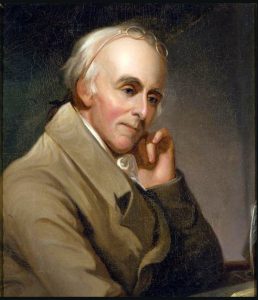
Do you recollect your memorable speech upon the Day on which the Vote was taken? Do you recollect the pensive and awful silence which pervaded the house when [a month later] we were called up, one after another, to the table of the President of Congress, to subscribe what was believed by many at that time to be our own death warrants? The Silence & the gloom of the morning were interrupted I well recollect only for a moment by Col: Harrison of Virginia who said to Mr Gerry at the table, “I shall have a great advantage over you Mr: Gerry when we are all hung for what we are now doing. From the size and weight of my body I shall die in a few minutes, but from the lightness of your body you will dance in the air an hour or two before you are dead.” This Speech procured a transient smile, but it was soon succeeded by the Solemnity with which the whole business was conducted.
The signing, therefore, was a momentous occasion, but a somber one as well. Everyone present was aware that he was placing everything at risk for the sake of independence. If the new nation lost the war, the British would, without question, hunt down and execute the men who were affixing their names to the document that day. Yet, as the Declaration states, they took their bold stand “with a firm reliance on the protection of Divine Providence.”
They meant this wholeheartedly. On July 14, 1776, Abraham Clark of New Jersey wrote to Elias Dayton, a friend of his who was a military leader in the American Revolutionary War,
Our Declaration of Independence I dare say you have seen. A few weeks will probably determine our fate. Perfect freedom, or Absolute Slavery. To some of us freedom or a halter. Our fates are in the hands of An Almighty God, to whom I can with pleasure confide my own; he can save us, or destroy us; his Councils are fixed and cannot be disappointed, and all his designs will be Accomplished.
On August 6, 1776, four days after August 2 signing of the Declaration, Clark wrote,
As to my title, I know not yet whether it will be honorable or dishonorable; the issue of the war must settle it. Perhaps our Congress will be exalted on a high gallows.…Nothing short of the power of God can save us…I think an interposing Providence hath been evident in all the events that necessarily led us to what we are—independent states.
In other words, Clark was saying that even though they were in the line of fire, they had a sense that they were where they were supposed to be, for the sake of a great cause. History would prove them right.
Putting Everything on the Line
In his book, American Treasures, historian and author Stephen Puleo describes the signing ceremony.
Apparently things went smoothly inside the statehouse on this historic Friday [August 2]. John Hancock, president of the Congress, signed first and largest, affixing and underscoring his name at the center of the document, a bold gesture that would forever make his name synonymous with the word “signature.”…
After Hancock, the other delegates lined up to sign according to custom, with the names arranged geographically, starting on the upper right-hand side of the signature area with delegates from the Northeast and ending on the bottom left with the Georgia delegation.2

Reading from left to right, the signatories’ names appear as follows. The states they represented also have been provided below. You can access a one-minute biographical video for each man in a state’s delegation by clicking on the hyperlink associated with that state.
First Column
Georgia
Button Gwinnett, Lyman Hall, George Walton;
Second Column
North Carolina
William Hooper, Joseph Hewes, John Penn;
South Carolina
Edward Rutledge, Thomas Heyward, Jr., Thomas Lynch, Jr., Arthur Middleton;
Third Column
John Hancock of Massachusetts, President of the Congress
Maryland
Samuel Chase, William Paca, Thomas Stone, Charles Carroll of Carrollton;
Virginia
George Wythe, Richard Henry Lee, Thomas Jefferson, Benjamin Harrison, Thomas Nelson, Jr., Francis Lightfoot Lee, Carter Braxton;
Fourth Column
Pennsylvania
Robert Morris, Benjamin Rush, Benjamin Franklin, John Morton, George Clymer, James Smith, George Taylor, James Wilson, George Ross;
Delaware
Caesar Rodney, George Read, Thomas McKean;
Fifth Column
New York
William Floyd, Philip Livingston, Francis Lewis, Lewis Morris;
New Jersey
Richard Stockton, John Witherspoon, Francis Hopkinson, John Hart, Abraham Clark;
Sixth Column
New Hampshire
Josiah Bartlett, William Whipple;
Massachusetts
Samuel Adams, John Adams, Robert Treat Paine, Elbridge Gerry;
Rhode Island
Stephen Hopkins, William Ellery;
Connecticut
Roger Sherman, Samuel Huntington, William Williams, Oliver Wolcott;
Matthew Thornton of New Hampshire, who could not be present for the signing on August 2, signed on November 19, 1776.3
Mining the Founders’ Wisdom
In a previous post, we discussed 12 qualities the signers exemplified. Courage was among them. Without question, these were men who acted as men. Yet, as Abraham Clark’s statements demonstrate, Clark and the other members of the Congress did not act arbitrarily.
In this article I want to highlight another of the qualities to which we previously alluded—the signers’ wisdom. We discussed their wisdom primarily in terms of their discernment, but here I want to consider it in broader terms. It does not take much research on the Internet to mine a large number of nuggets of truth from these Founders. They weren’t right in absolutely every instance; but overall, they were. Their insights abound, and we will do well to tap into the vast reservoir of understanding they left behind. It can help us immensely, even—and perhaps especially—as we deal with issues that confront us today. We’ll mention some of the well known signers of the Declaration, but also some of their lesser known counterparts. Of the 56, we’ll hone in on 19. For the most part, we will simply let them speak for themselves.
John Trumbull’s The Declaration of Independence
Go here for more information about this painting.
Edward Rutledge of South Carolina
Edward Rutledge would become South Carolina’s 39th governor. He would serve from December 18, 1798 until his death on January 23, 1800.
-
-
- Be mild and firm. Apply your best exertions to put us in a proper posture of defense.
- I always considered an idle Life, as a real evil, but, a life of such hurry, such constant hurry, leaves us scarcely a moment for reflection or for the discharge of any other then the most immediate and pressing concerns.
-
John Hancock of Massachusetts, President of the Congress
John Hancock would become the first and third governor of Massachusetts.
-
-
- Resistance to tyranny becomes the Christian and social duty of each individual….Continue steadfast and, with a proper sense of your dependence on God, nobly defend those rights which heaven gave, and no man ought to take from us.
- Some boast of being friends to government; I am a friend to righteous government, to a government founded upon the principles of reason and justice; but I glory in publicly avowing my eternal enmity to tyranny.
- A chip on the shoulder is too heavy a piece of baggage to carry through life.
-
Samuel Chase of Maryland
Samuel Chase rightly understood that America was founded on Christian principles and that Christianity was the recognized religion of the new nation; but he also recognized that no Christian denomination was favored above any other. His opinion wasn’t insignificant, either. In a decision made by the Maryland Supreme Court in 1799, Justice Chase wrote the court’s decision. It included these statements.
Religion is of general and public concern, and on its support depend, in great measure, the peace and good order of government, the safety and happiness of the people. By our form of government, the Christian religion is the established religion; and all sects and denominations of Christians are placed upon the same equal footing, and are equally entitled to protection in their religious liberty.
Thomas Jefferson of Virginia, Principal Author of the Declaration
Hear and heed the wisdom of Thomas Jefferson, the man who would become the third president of the United States. Also, keep digging for more insights from this wise Founding Father!
-
-
- Experience hath shewn, that even under the best forms of government those entrusted with power have, in time, and by slow operations, perverted it into tyranny.
- Does the government fear us? Or do we fear the government? When the people fear the government, tyranny has found victory. The federal government is our servant, not our master!
- It is error alone which needs the support of government. Truth can stand by itself.
- If a nation expects to be ignorant and free, in a state of civilization, it expects what never was and never will be.
-
Carter Braxton of Virginia
Carter Braxton was a wealthy merchant and plantation owner. He understood the relationship between happiness and integrity, or virtue. In a society that rewards virtue, an individual acts with integrity not just for the benefit of others, but for his own as well. This is not totally a bad thing, because mutual benefit is involved. Braxton said,
The happiness and dignity of man I admit consists in the practice of private virtues, and to this he is stimulated by the rewards promised to such conduct. In this he acts for himself, and with a view of promoting his own particular welfare.
Unfortunately, we have become a society that has ceased to reward virtue, and thus we have removed incentives to act decently and with appropriate respect toward others.
Robert Morris of Pennsylvania
Robert Morris became a United States Senator from Pennsylvania. It’s apparent that he understood human nature and the natural tendencies of government quite well.
Were it possible that a Society should exist in which every member would, of his own accord, industriously pursue the increase of National property without waste or extravagance, the public Wealth would be impaired by every Species of Taxation, but there never was, and unless human nature should change, there never will be such a Society. In any given number of men there will always be some who are idle and some who are extravagant.
Benjamin Rush of Pennsylvania
We mentioned Benjamin Rush earlier and discussed his comments regarding the signing ceremony. Rush was a medical doctor and a devout Christian. Here are five additional quotes from him.
-
-
- The Bible, when not read in schools, is seldom read in any subsequent period of life…The Bible…should be read in our schools in preference to all other books because it contains the greatest portion of that kind of knowledge which is calculated to produce private and public happiness.
- The only foundation for a useful education in a republic
is to be laid in religion. Without this there can be no virtue, and without virtue there can be no liberty, and liberty is the object and life of all republican [lower case r] governments. - Temperate, sincere, and intelligent inquiry and discussion are only to be dreaded by the advocates of error. The truth need not fear them.
- Without the restraints of religion and social worship, men become savages much sooner than savages become civilized by means of religion and civil government.
- This day I attended the funeral of Wm. Grays wife, a black woman, with about 50 more white persons and two Episcopal clergymen. The white attendants were cheifly the nieghbours of the deceased. The sight was a new one in Philadelphia, for hitherto (a few cases excepted) the Negroes alone attended each others funerals. By this event it is to be hoped the partition wall which divided the Blacks from the Whites will be still further broken down and a way prepared for their union as brethren and members of one great family.
-
Benjamin Franklin of Pennsylvania
Benjamin Franklin is a well known Founding Father with a wide range of talents, and a large number of roles in society. He had tremendous insights regarding the best ways to help the poor.
I am for doing good to the poor, but I differ in opinion of the means. I think the best way of doing good to the poor, is not making them easy in poverty, but leading or driving them out of it. In my youth I traveled much, and I observed in different countries, that the more public provisions were made for the poor, the less they provided for themselves, and of course became poorer. And, on the contrary, the less was done for them, the more they did for themselves, and became richer.
Some may accuse Franklin of oversimplifying—but I believe he was on to something! Benjamin Franklin also made these statements.
-
-
- When you’re good to others, you’re best to yourself.
- Pardoning the Bad, is injuring the Good.
- Search others for their virtues, thy self for thy vices.
- It is better to take many Injuries than to give one.
- Wish not so much to live long as to live well.
-
And these…
-
-
- If everyone is thinking alike, then no one is thinking.
- As we must account for every idle word, so must we account for every idle silence.
- Without freedom of thought, there can be no such thing as wisdom; and no such thing as public liberty without freedom of speech; which is the right of every man as far as by it he does not hurt or control the right of another; and this is the only check it ought to suffer and the only bounds it ought to know…. Whoever would overthrow the liberty of a nation must begin by subduing the freedom of speech, a thing terrible to traitors.
- They who can give up essential liberty to obtain a little temporary safety deserve neither liberty nor safety.
- When the people find that they can vote themselves money, that will herald the end of the republic.
-
George Clymer of Pennsylvania
George Clymer, an early advocate of American independence, apparently had keen insight into human nature. He observed,
Some men’s minds are like looking-glasses, for, having no images or impressions of their own, they can but reflect those of other people.
Clymer also held a strong conviction about what we often call today “fake news” —
A printer publishes a lie: for which he ought to stand in the pillory, for the people believe in and act upon it.
We should realize, as did our Founders, that believing in a free press does not mean one permits an irresponsible press to get away with misinformation and outright lies.
James Wilson of Pennsylvania
Human law must rest its authority ultimately upon the authority of that law which is divine. Far from being rivals or enemies, religion and law are twin sisters, friends, and mutual assistants. Indeed, these two sciences run into each other.
Caesar Rodney of Delaware
Rodney declared,
That it is our fixed, determined and unalterable resolution, by all lawful ways and means in our power, to maintain, defend and preserve our before mentioned rights and liberties, and that we will transmit them entire and inviolate to our posterity; and further, that we will adopt and faithfully carry into execution all and singular such peaceable and constitutional measures as have been agreed on by this Congress.
It is government’s responsibility to protect the people’s rights and maintain their liberties; not to provide for the people’s needs.
Richard Stockton of New Jersey
In his will, Richard Stockton declared,
I think it proper here not only to subscribe to the entire belief of the great and leading doctrines of the Christian religion, such as the Being of God, the universal defection and depravity of human nature, the divinity of the person and the completeness of the redemption purchased by the blessed Savior, the necessity of the operations of the Divine Spirit, of Divine Faith, accompanied with an habitual virtuous life, and the universality of the divine Providence, but also . . . that the fear of God is the beginning of wisdom; that the way of life held up in the Christian system is calculated for the most complete happiness that can be enjoyed in this mortal state; that all occasions of vice and immorality is injurious either immediately or consequentially, even in this life; that as Almighty God hath not been pleased in the Holy Scriptures to prescribe any precise mode in which He is to be publicly worshiped, all contention about it generally arises from want of knowledge or want of virtue.
John Witherspoon of New Jersey
Witherspoon was the only pastor to sign the Declaration of Independence, even though many of the others apparently knew as much or more theology than many pastors today. He also served as president of what is now Princeton University. Here are some quotes from Witherspoon.
-
-
- The people in general ought to have regard to the moral character of those whom they invest with authority either in the legislative, executive, or judicial branches.
- But what kind of society will we have if our responsibilities are set by man, and not by God?
- There is not a single instance in history, in which civil liberty was lost, and religious liberty preserved entire. If therefore we yield up our temporal property, we at the same time deliver the conscience into bondage.
- Never rise to speak till you have something to say; and when you have said it, cease.
-
John Hart of New Jersey
In an address given October 5, 1776, John Hart stated, “We will look for the permanency and stability of our new government to Him who bringeth princes to nothing and teacheth senators wisdom.”
Josiah Bartlett of New Hampshire
Josiah Bartlett became the 4th Governor of New Hampshire. During his tenure, he issued a proclamation that said, in part,
That it would please Him [God] still to have these United States under His Holy protection and guidance – that He would inspire those who have the management of all our public affairs with all that wisdom, prudence and integrity that is necessary to the faithful discharge of their important trusts, that all their determinations may tend to promote the real happiness and prosperity of this great and rising Republic, and that all people may be disposed to afflict in carrying such determinations into effect.
Samuel Adams of Massachusetts
Samuel Adams, a second cousin of John Adams, understood the importance of the right to keep and bear arms, as well as the meaning of the Second Amendment. He declared,
[The] Constitution shall never be construed to prevent the people of the United States who are peaceable citizens from keeping their own arms.
Also, as we affirmed at the beginning of a recent post, Adams said this, and he said it one day before most of the signers of the Declaration of Independence affixed their names to the document.
If ye love wealth better than liberty, the tranquility of servitude than the animated contest of freedom – go home from us in peace. We ask not your counsels or arms. Crouch down and lick the hands which feed you. May your chains sit lightly upon you, and may posterity forget that you were our countrymen!
John Adams of Massachusetts
John Adams served as the second president of the United States.
-
-
- I always consider the settlement of America with reverence and wonder, as the opening of a grand scene and design in providence, for the illumination of the ignorant and the emancipation of the slavish part of mankind all over the earth.
- Property is surely a right of mankind as real as liberty.
- Facts are stubborn things; and whatever may be our wishes, our inclinations, or the dictates of our passions, they cannot alter the state of facts and evidence.
- Human passions unbridled by morality and religion . . . would break the strongest cords of our Constitution as a whale goes through a net.
- Suppose a nation in some distant Region should take the Bible for their only law Book, and every member should regulate his conduct by the precepts there exhibited! Every member would be obliged in conscience, to temperance, frugality, and industry; to justice, kindness, and charity towards his fellow men; and to piety, love, and reverence toward Almighty God … What a Eutopia, what a Paradise would this region be.
- Government is instituted for the common good; for the protection, safety, prosperity, and happiness of the people; and not for profit, honor, or private interest of any one man, family, or class of men; therefore, the people alone have an incontestable, unalienable, and indefeasible right to institute government; and to reform, alter, or totally change the same, when their protection, safety, prosperity, and happiness require it.
-
Robert Treat Paine of Massachusetts
Robert Treat Paine, a signer of the Declaration of Independence who later would serve on the Massachusetts Supreme Judicial Court, was grateful for American liberties. He said,
I desire to bless and praise the name of God most high for appointing me my birth in a land of Gospel Light where the glorious tidings of a Savior and of pardon and salvation through Him have been continually sounding in mine ears.
Roger Sherman of Connecticut
Before the end of his political career, Roger Sherman served in both the US House of Representatives and in the US Senate. Of him Thomas Jefferson said, here is “a man who a man who never said a foolish thing in his life.” Regarding inherent rights, Sherman said,
You are further to declare that we hold sacred the rights of conscience, and may promise to the whole people, solemnly in our name, the free and undisturbed exercise of their religion. And…that all civil rights and the right to hold office were to be extended to persons of any Christian denomination.
While religious faith is not a requirement for holding public office today, we do well to understand the intentions of the Founders. They believed in government’s affirmation of Christianity, but not in government’s favoring one denomination over another. We especially should rally to affirm the conscience rights highlighted here by Roger Sherman.
Sherman also said, “The only real security that you can have for all your important rights must be in the nature of your government. If you suffer any man to govern you who is not strongly interested in supporting your privileges, you will certainly lose them.”
Only Scratching the Surface
Do you see the treasure that history, objectively studied, offers us? We have only scratched the surface! Please consider this article an appetizer and go after more.
The Founders’ wisdom awaits all who will search, find, listen, and heed. Remember, as we affirmed earlier, it doesn’t take an intensive search or a great deal of time to uncover much.
For your own sake and for the sake of liberty in America—
dive in!
Copyright © 2019 by B. Nathaniel Sullivan. All rights reserved.
Notes:
1According to an archives.gov page showcasing a timeline for the Declaration of Independence, the Declaration “was signed by most of the members on August 2. George Wythe signed on August 27. On September 4, Richard Henry Lee, Elbridge Gerry, and Oliver Wilcott signed. Matthew Thornton signed on November 19, and Thomas McKean signed in 1781.”
2Stephen Puleo, American Treasures, (New York: St. Martin’s Press, 2016), 66.
3See footnote 1.
top image credit: The Declaration of Independence of the United States of America, July 4, 1776 by Charles Édouard Armand-Dumaresq / 1873

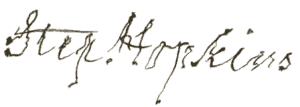

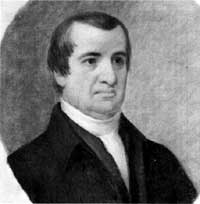

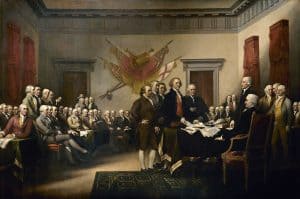


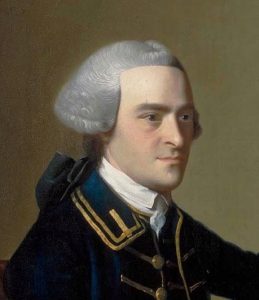

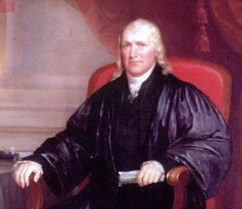



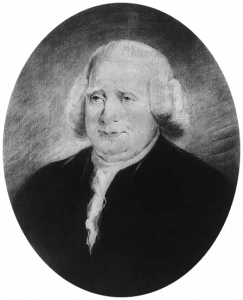
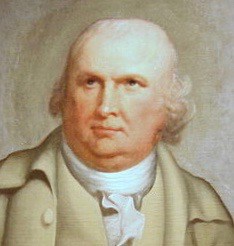

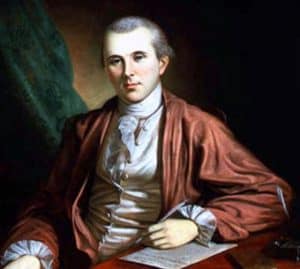


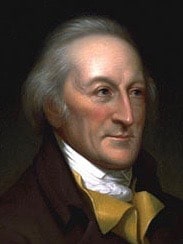

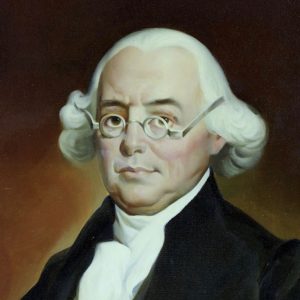

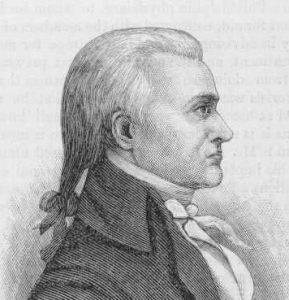

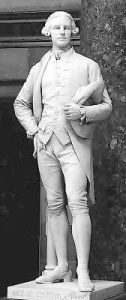
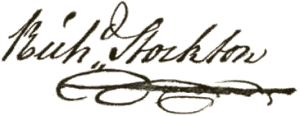
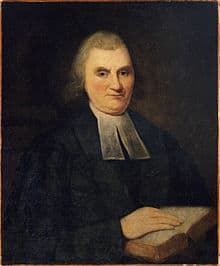

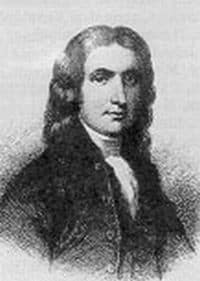

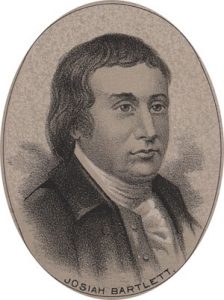

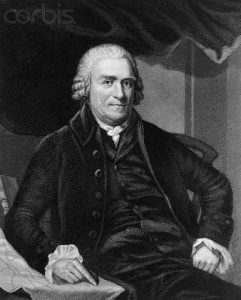
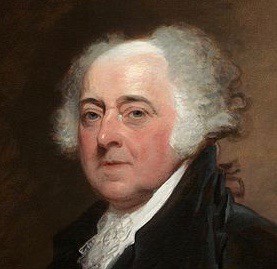

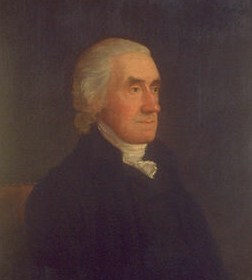

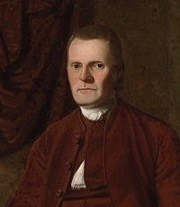

[…] Independence affixed their names to America’s “birth certificate,” I published an article titled “Recapture the Founders’ Wisdom.” In it, my readers and I explored some of […]